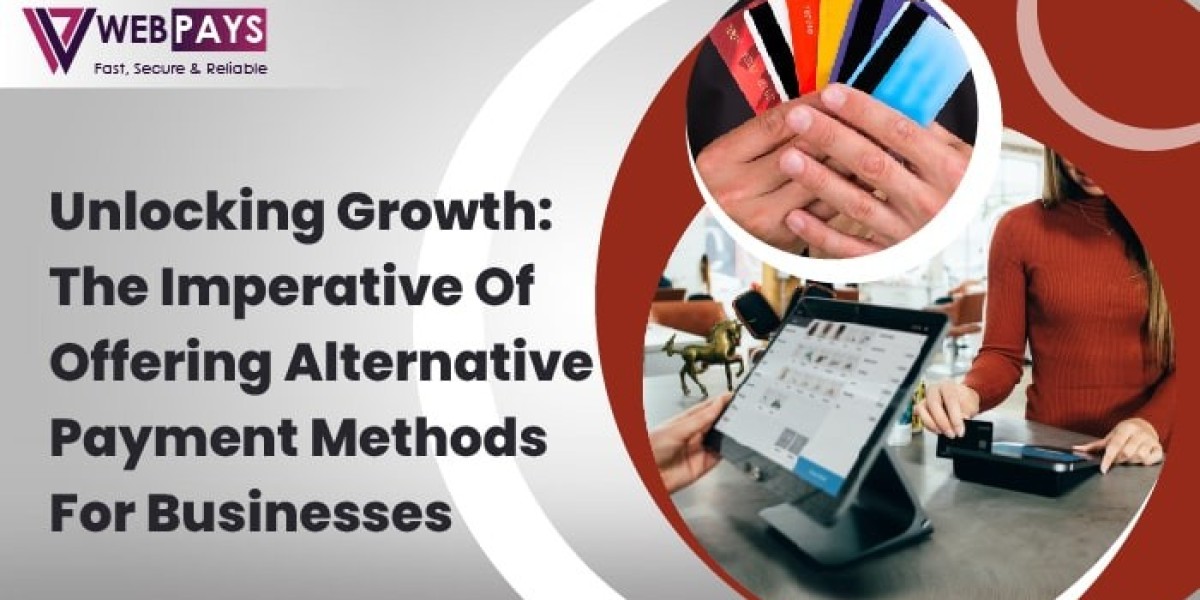The digital age has transformed how we shop, with e-commerce booming and online transactions becoming the norm. For businesses of all sizes, a robust online presence is no longer a luxury, but a necessity. However, in this competitive landscape, simply having an online store isn't enough. Today's customers demand a seamless and convenient checkout experience, and a crucial factor in achieving this is offering a variety of payment options.
This is where Alternative Payment Methods (APMs) come into play. These are payment methods beyond traditional credit and debit cards, and they're rapidly gaining popularity among consumers around the world. By embracing APMs, businesses unlock the potential to expand their customer base, improve conversion rates, and ultimately, achieve significant growth. This blog dives into the world of APMs, exploring their benefits and how businesses can leverage them to unlock their full potential in the ever-evolving landscape of online payments. Read on.
The Rise of Alternative Payment Methods (APMs)
In today's digital world, customers are increasingly ditching their wallets for a wider array of payment options beyond traditional credit and debit cards. This rise in popularity belongs to Alternative Payment Methods (APMs).
What are APMs?
APMs represent a diverse group of electronic payment methods that offer a convenient and often faster alternative to traditional cards. Some popular examples include:
● Digital Wallets: These secure apps store users' credit card information, allowing for quick and contactless payments at online stores and physical locations with compatible terminals (e.g., Apple Pay, Google Pay).
● Buy Now, Pay Later (BNPL): This financing option allows customers to split their purchase into smaller installments, often without interest charges (e.g., Klarna, Afterpay).
● Bank Transfers: Direct bank transfers allow customers to electronically transfer funds from their checking account directly to the merchant's bank account, offering a secure and familiar payment method.
● Prepaid Cards: These reloadable cards function similarly to debit cards, but are pre-loaded with a specific amount of funds.
Why are APMs Gaining Traction?
Several factors contribute to the surging popularity of APMs:
● Convenience: APMs offer a faster and more streamlined checkout experience compared to traditional cards. Digital wallets eliminate the need to manually enter card details, while BNPL options provide instant credit decisions.
● Security: Many APMs boast robust security features like tokenization and multi-factor authentication, providing peace of mind for customers concerned about online fraud.
● Global Reach: Certain APMs, like digital wallets, offer wider global acceptance compared to some regional credit card networks, making them ideal for businesses targeting international customers.
● Improved Conversion Rates: By catering to customers who prefer specific payment methods, businesses can reduce cart abandonment and boost conversion rates at checkout.
The rise of APMs signifies a shift in customer preferences and highlights the need for businesses to adapt and offer a wider range of payment options to stay competitive in the ever-evolving e-commerce landscape.
Understanding the Shift in Consumer Preferences
Consumer preferences are constantly evolving, driven by advancements in technology, changes in lifestyle, and shifts in market dynamics. Today's consumers seek convenience, security, and flexibility when making purchases, both online and offline. Traditional payment methods, such as cash and credit cards, are no longer sufficient to meet these demands. As a result, businesses must adapt by offering alternative payment methods that cater to the diverse needs of their customers.
The Benefits of Offering Alternative Payment Methods
1. Enhanced Customer Experience
Alternative payment methods offer customers greater convenience and flexibility, leading to an improved overall shopping experience. By providing multiple payment options, businesses can cater to a wider audience and reduce friction at the checkout process.
2. Increased Conversion Rates
Offering alternative payment methods can lead to higher conversion rates, as customers are more likely to complete a purchase when presented with their preferred payment option. This can result in a higher return on investment (ROI) for businesses, as more transactions are successfully completed.
3. Global Expansion Opportunities
Many alternative payment methods have global reach, allowing businesses to expand their customer base beyond geographical boundaries. By accepting payments in multiple currencies and through various channels, businesses can tap into new markets and drive international growth.
4. Improved Security and Fraud Prevention
Some alternative payment methods offer advanced security features, such as tokenization and encryption, to protect sensitive customer data. By leveraging these secure payment solutions, businesses can reduce the risk of fraud and build trust with their customers.
Key Considerations For Implementing Alternative Payment Methods
1. Understand Your Customers' Preferences
Before implementing APMs, businesses should conduct market research to understand their customers' preferences and behaviors. By gaining insights into what payment options are most popular among their target audience, businesses can tailor their offerings to meet customer demands.
2. Evaluate Integration Options
When selecting APMs, businesses should consider the ease of integration with their existing payment infrastructure. Some payment solutions may require additional development work or third-party partnerships, so businesses should weigh the costs and benefits of each option.
3. Ensure Compliance with Regulations
Businesses must ensure compliance with relevant regulations and industry standards when implementing alternative payment methods. This includes adhering to data protection laws, anti-money laundering regulations, and payment card industry (PCI) standards to protect both customers and businesses from legal and financial risks.
4. Provide Ongoing Support and Education
Once alternative payment methods are implemented, businesses should provide ongoing support and education to their customers. This may include offering tutorials, FAQs, and customer service channels to assist customers with using new payment options effectively.
How WebPays Keeps You Ahead?
At WebPays, we tailor innovative solutions to fit your needs, whether you're dealing with high risk payment processing or exploring alternative payment methods. We empower businesses to confidently navigate payment complexities. Our dedicated team understands the unique challenges faced by high-risk businesses and works tirelessly to minimize risks while maximizing payment acceptance. Partnering with the best high risk merchant account provider gives you access to cutting-edge technologies and a robust infrastructure for seamless transactions. We prioritize security and compliance, implementing advanced fraud prevention measures and ensuring regulatory adherence. Stay ahead with WebPays and embrace the future of diverse payment methods with confidence. Reach out to WebPays today to unlock new opportunities and drive growth through alternative payment solutions.
Conclusion
In conclusion, embracing alternative payment methods (APMs) is crucial for businesses looking to unlock growth in today's digital landscape. By offering diverse payment options beyond traditional credit and debit cards, businesses can enhance the customer experience, increase conversion rates, expand globally, and improve security. With WebPays, businesses can stay ahead by accessing tailored solutions for high risk payment processing and APMs. Our dedicated team prioritizes security, compliance, and cutting-edge technologies to empower businesses to navigate payment complexities confidently. Partner with WebPays today to unlock new opportunities and drive growth through alternative payment solutions.








